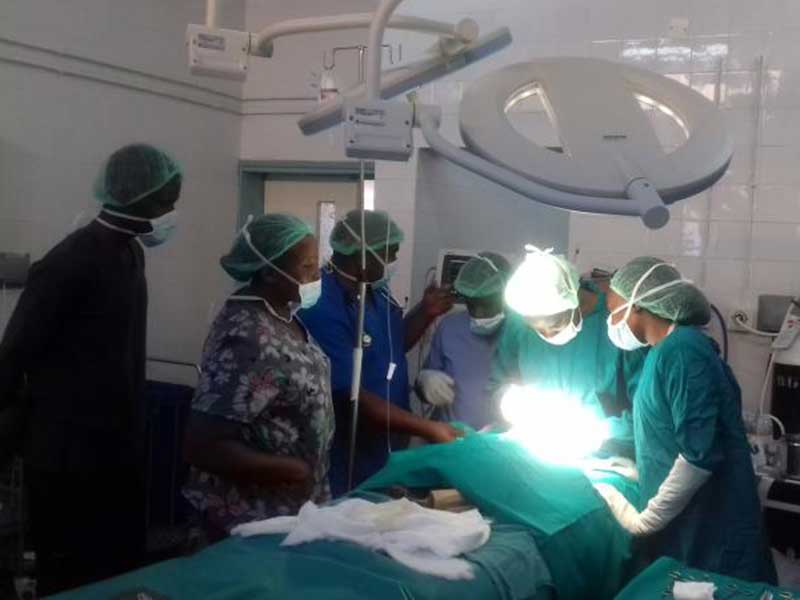
Universal Healthcare Coverage (UHC) is something we are hearing of more and more, yet few of us have bothered to understand our roles. We know that it’s on the President’s Big Four agenda list, and has something to do with insurance, but details are hazy.
Definitions of UHC vary, but most agree that it has to do with availing certain priority health services to all citizens without their need to pay at the point of use, and, ensuring that the services are of good quality and that they meet the users’ expectations.
What these definitions don’t quite bring out is the fact that UHC is everybody’s business. You see, healthcare doesn’t result in physical end products like housing or farming. Health services are produced and consumed concurrently.
Good health is not easy to value, yet in its absence, citizens cannot engage in meaningful social and economic activity. Everybody has a role to play.
Let’s start with the general public. How can we be involved? We can help by simply adopting healthier lifestyles. You see, achieving UHC doesn’t mean providing all services for everyone. It is simply not possible to cover all illnesses known to man. Some form of rationing is inevitable.
Worse still, the UHC agenda is coming at a time when we are seeing a rise in non-communicable disease like kidney disease and cancer.
It is estimated that over 10, 000 patients have end-stage kidney disease requiring renal dialysis, which costs upwards of Sh9, 500 per session.
Cancer statistics are worse; we are reporting 39, 000 new cases each year. These diseases are often costly to treat and may require lifelong medicines and support.
UHC will be funded through tax, which requires that the population is healthy enough to engage in economic activity. The sick work less, yet consume more healthcare, resulting in a vicious cycle. We know that healthier eating and regular exercise alone can turn this vicious cycle into a virtuous cycle, where we’ll have fewer sick people using fewer resources, allowing us to safe and use the resources to cover more people.
We must also change the way we look at health insurance. You see, the concept of insurance is based on actuarial fairness and social solidarity. Actuarial fairness means paying premiums according to one’s risk profile, or simply put-you eat what you kill. Social solidarity means wealthier persons subsidise poorer ones, healthier ones subsidise sicker ones, and younger ones subsidise the elderly.
It’s about building a healthier nation together. Our income disparities and high poverty imply that social solidarity must guide our e orts towards expanding insurance coverage beyond the current 19 per cent. It needn’t be that hard, considering we are all already doing it through unstructured hospital bill commonly referred to as ‘harambees’.
What should the government do? For starters, it must relieve the financial burden that Kenyans are facing under the current system. It’s worth noting that the government has made some recent strides already, setting up a panel to define a benefits package that must be provided across the entire population. The question we are all asking, however, is whether government will foot the bill without nitpicking or watering down the package. One can excuse some skepticism.
You see, successive governments have failed to meet the target set by African leaders back in Abuja in 2001 to have countries allocate 15 per cent of their budgets to health. Kenya continues to oscillate between 4-7 per cent. Funding UHC will require unprecedented financial commitment.
Next, the government must reform insurance to support expansion. Experts recommend making contributions compulsory. I favour a cautious approach that considers the informality of our economy.
The government must also strengthen regulation of the health sector. UHC needs all hands on deck. Case in point, we have roughly two million deliveries in Kenya each year. At full capacity, government facilities can handle up to 60 per cent of these, carving out a hugely important role for the private sector. The government must nonetheless strengthen regulation to safeguard public interest.
Universities and research organisations too have an important role. As UHC is rolled-out in the pilot counties, academic partners can help by tracking performance and drawing out lessons for scale-up.
And finally, counties and healthcare facilities must prioritise cost-effective interventions. This may mean more medical advice and fewer medicines. It may mean optimising processes to deliver quality services at lower cost. It may mean enforcing gatekeeping mechanisms for efficient use of higher level facilities.
Political goodwill, better resourcing of lower level facilities, and a shared understanding of what services should be provided at different levels are required for a strengthened referral system. A normal delivery costs the government much less when done at a health centre compared to a national referral hospital. We must provide more services for less.
UHC is an ambitious goal. It is achievable. But it is everybody’s business.
Francis Wafula, PhD Senior Lecturer, Health Systems and Policy Strathmore University
 The Standard Group Plc is a multi-media organization with investments in media
platforms spanning newspaper print
operations, television, radio broadcasting, digital and online services. The
Standard Group is recognized as a
leading multi-media house in Kenya with a key influence in matters of national
and international interest.
The Standard Group Plc is a multi-media organization with investments in media
platforms spanning newspaper print
operations, television, radio broadcasting, digital and online services. The
Standard Group is recognized as a
leading multi-media house in Kenya with a key influence in matters of national
and international interest.











